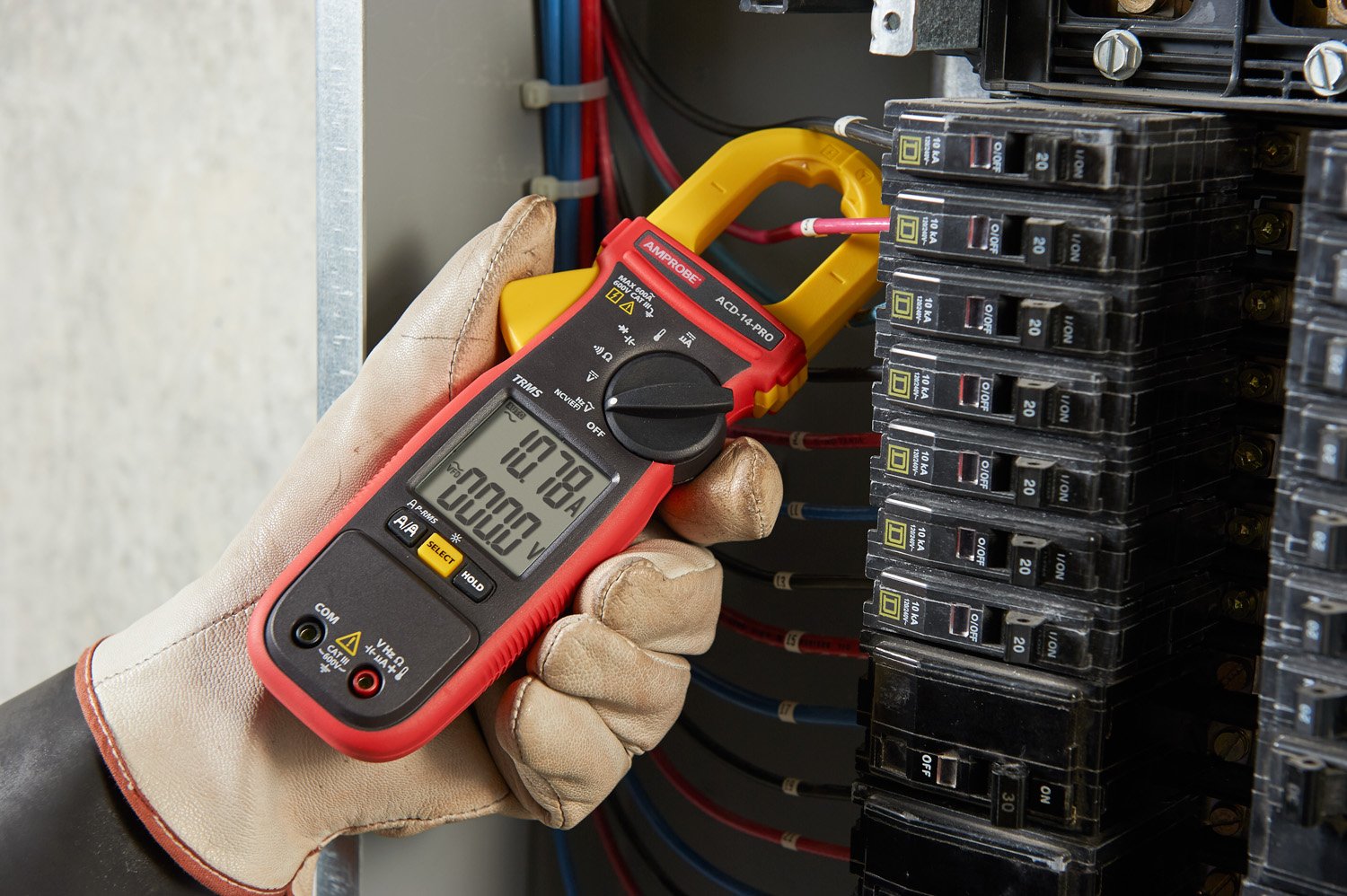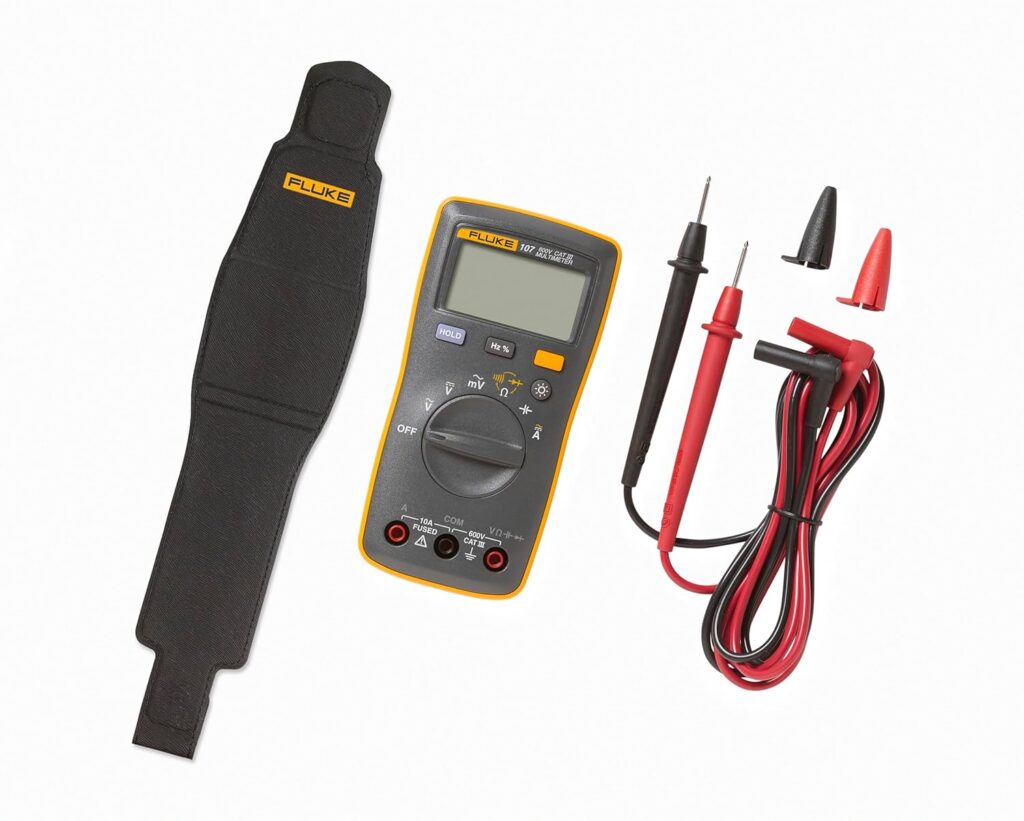The Digital Multimeter is one of the indispensable tool In our technologically advanced world of today. Electronic devices have become a daily necessity for every technical worker. Whether you are a hobbyist, an electronics enthusiast, or a professional technician, having the right tools is crucial for troubleshooting, testing, and repairing electronic circuits. One such indispensable tool is the digital multimeter (DMM). In this comprehensive guide, we delve into the intricacies of digital multimeters, exploring their functionality, types, applications, and tips for efficient usage.
Understanding Digital Multimeters
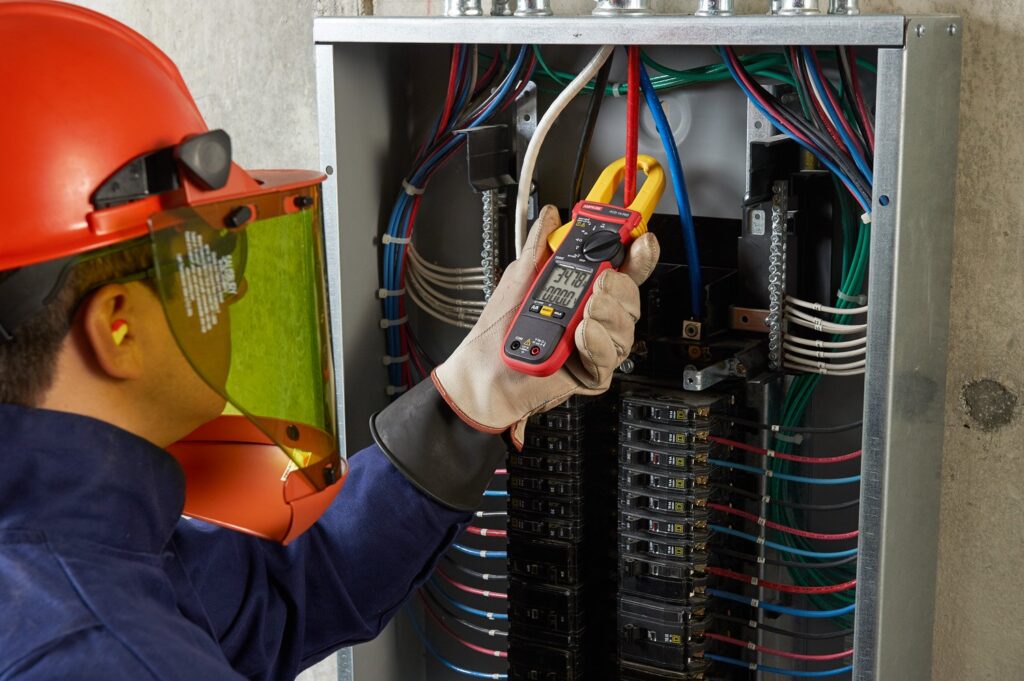
A digital multimeter is an electronic instrument used to measure several electrical parameters, including voltage, current, and resistance. Unlike its analog counterpart, which employs a mechanical display, it utilizes a digital display, offering precise readings with high accuracy and resolution. The primary components of this multimeter include the display screen, rotary selector switch, input jacks, and probes.
Functionality
Digital multimeters are versatile tools capable of performing various functions, making them indispensable in numerous applications. The key functions of a digital multimeter include:
Voltage Measurement:
- Voltage measurement is one of the primary functions of a (DMM). It allows users to measure the electrical potential difference between two points in a circuit.
- Digital multimeters can measure both alternating current (AC) and direct current (DC) voltages across different ranges. This versatility is essential as various electronic devices and circuits operate on different voltage levels.
- Voltage measurement is crucial for diagnosing electrical issues, verifying power supply outputs, and determining the voltage across components in a circuit.
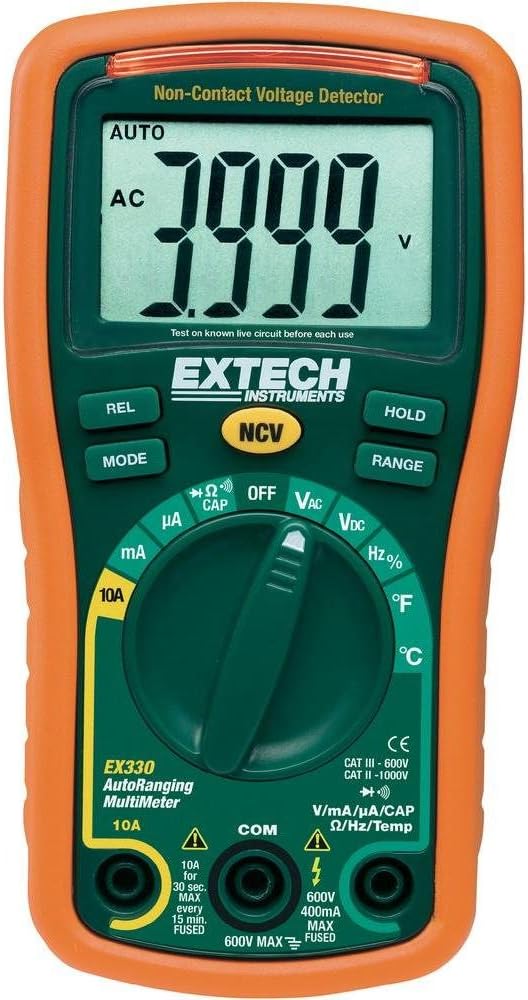
Current Measurement:
- Current measurement capability enables users to measure the flow of electrical current through a circuit.
- Digital multimeters can measure both AC and DC currents, providing insights into the behavior and performance of electrical systems.
- Current measurement is essential for assessing the load on a circuit, diagnosing over current or short-circuit conditions, and troubleshooting faults in electronic devices and power supplies.
Resistance Measurement:
- Resistance measurement functionality allows users to determine the resistance of resistors, conductors, and other components within a circuit.
- By measuring resistance, users can identify faulty components, troubleshoot connectivity issues, and verify the integrity of electrical pathways.
- Resistance measurement is crucial for diagnosing open circuits, identifying short circuits, and assessing the overall health of electronic components and circuits.
Continuity Testing:
- Continuity testing is a feature that verifies the continuity or integrity of electrical connections within a circuit.
- Digital multimeters emit an audible beep or display a visual indicator when a circuit is complete, indicating that there is a continuous path for electrical current flow.
- Continuity testing is useful for quickly identifying broken connections, loose wires, or faulty components, thereby aiding in troubleshooting and repair tasks.
Each of these functionalities plays a crucial role in the operation and utility of a digital multimeter, allowing users to accurately measure voltage, current, resistance, and continuity in electronic circuits and devices. Combined, these features enable efficient troubleshooting, testing, and diagnostics, making DMM essential tools for professionals and enthusiasts in various fields of electronics and electrical engineering.
Types of Digital Multimeters
Digital multimeters come in various types, each tailored to specific applications and user requirements. The common types include:
Let’s delve into the different types of digital multimeters:
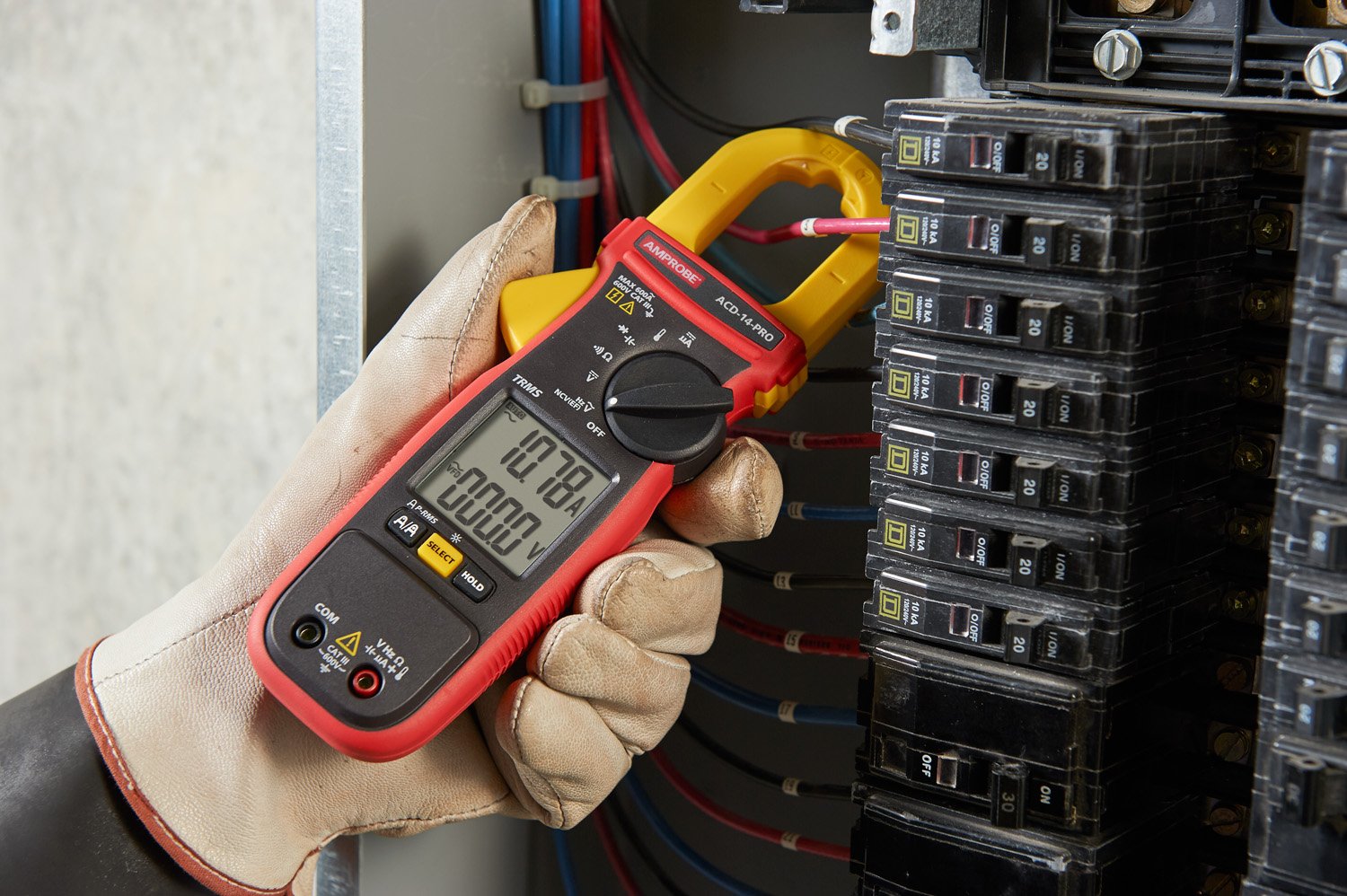
Handheld Digital Multimeters:
- Handheld digital multimeters are compact, portable, and designed for ease of use in various settings, including fieldwork, on-site troubleshooting, and DIY projects.
- These multimeters typically offer essential measurement functions such as voltage, current, and resistance, making them suitable for hobbyists, technicians, electricians, and students.
- Handheld multimeters come with a user-friendly interface, a compact form factor, and durable construction to withstand rough handling and outdoor conditions.
- They are favored for their versatility, affordability, and convenience, making them a staple tool for professionals and enthusiasts alike.
Bench top Digital Multimeters:
- Bench top digital multimeters are stationary instruments designed for laboratory, bench, or workshop environments where precision, accuracy, and advanced measurement capabilities are paramount.
- These multimeters offer enhanced features such as higher accuracy, resolution, and measurement ranges compared to handheld counterparts.
- Bench top multimeters often feature multiple input channels, large display screens, and additional measurement functions, catering to the needs of professionals, researchers, and engineers working on complex electronic systems and experiments.
- They are suitable for applications requiring precise measurements, calibration, and analysis, making them indispensable tools in research labs, educational institutions, and industrial facilities.
Automotive Digital Multimeters:
- Automotive digital multimeters are specialized tools tailored for diagnosing and troubleshooting electrical issues in automotive systems, including cars, trucks, motorcycles, and recreational vehicles.
- These multimeters offer specific features and measurement functions required for testing automotive electrical systems, such as battery voltage, alternator output, circuit continuity, and sensor signals.
- Automotive multimeters may include additional accessories, such as specialized probes, clamps, and adapters, to facilitate testing in tight spaces and challenging environments.
- They are essential for automotive technicians, mechanics, and enthusiasts involved in vehicle maintenance, repair, and performance tuning, enabling efficient diagnosis and resolution of electrical problems.
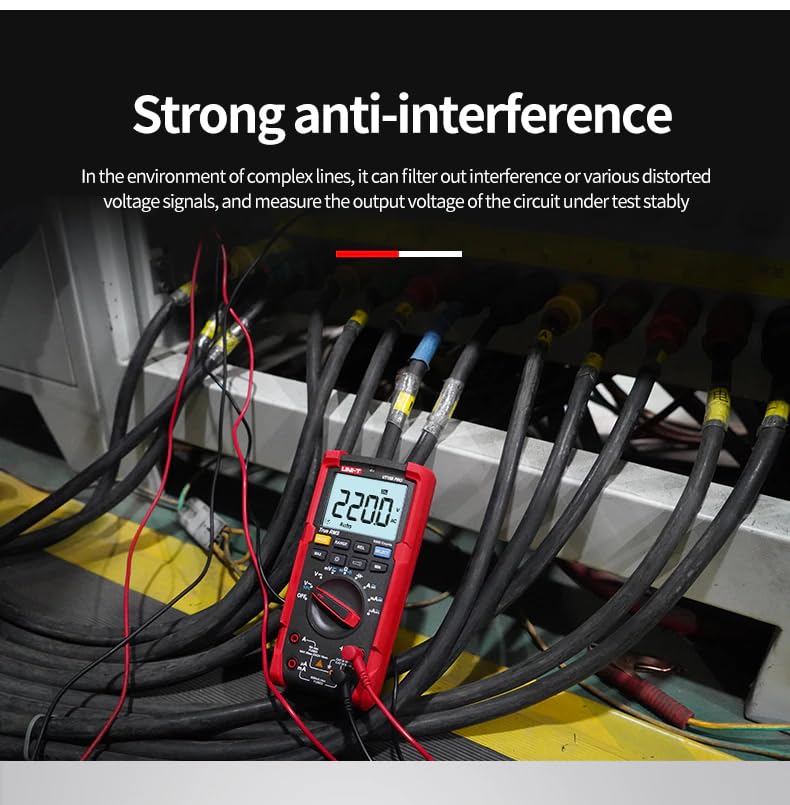
Each type of digital multimeter caters to specific user requirements, applications, and environments, offering distinct features, functions, and capabilities tailored to different scenarios. Whether for general-purpose measurements, laboratory experiments, or automotive diagnostics, selecting the appropriate type of multimeter is crucial for achieving accurate and reliable results in various electrical testing and troubleshooting tasks.
Applications
Digital multimeters find extensive applications across various industries and fields, including:
Electronics Repair:
- Digital multimeters are indispensable tools for diagnosing and repairing electronic devices such as computers, televisions, smartphones, and home appliances.
- In electronics repair, digital multimeters are used to troubleshoot issues related to power supplies, circuit boards, components, and connectivity.
- Technicians and hobbyists rely on multimeters to measure voltages, currents, resistances, and continuity in circuits, identify faulty components, and perform necessary repairs or replacements.
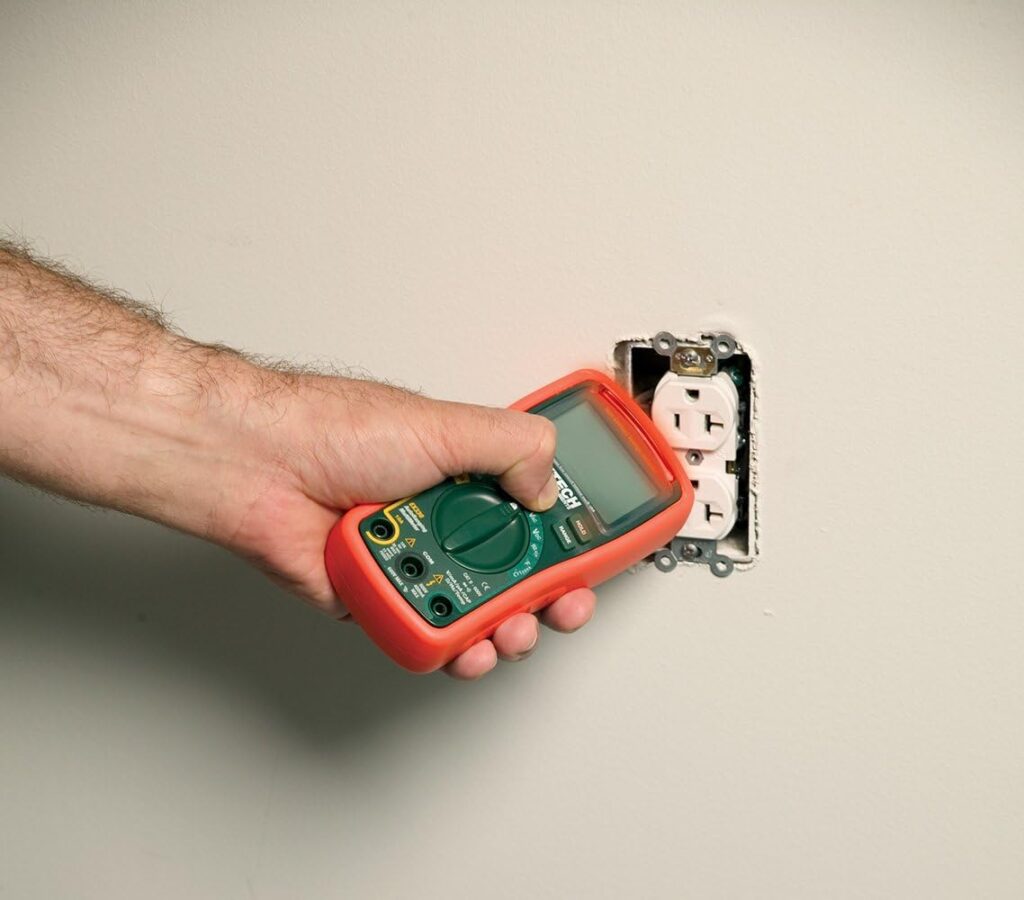
Electrical Engineering:
- These multimeters play a vital role in electrical engineering for circuit analysis, testing prototypes, and verifying electrical parameters in various applications.
- Electrical engineers utilize multimeters to measure voltages, currents, and resistances in electronic circuits, power systems, and control systems.
- Digital multimeters aid in debugging circuits, optimizing designs, and ensuring compliance with specifications and standards in research, development, and production environments.
Automotive Maintenance:
- Automotive technicians rely on digital multimeters for diagnosing and troubleshooting electrical issues in vehicles, including cars, trucks, motorcycles, and recreational vehicles.
- In automotive maintenance, multimeters are used to test battery voltage, alternator output, starter systems, ignition systems, sensors, and other electrical components.
- These multimeters help identify faulty wiring, short circuits, voltage drops, and irregularities in electrical signals, enabling technicians to perform efficient repairs and maintenance tasks.
Industrial Maintenance:
- In industrial settings, digital multimeters are essential for preventive maintenance, troubleshooting machinery, and ensuring electrical safety compliance.
- Industrial maintenance technicians use multimeters to monitor and test electrical systems, control panels, motors, sensors, and automation equipment.
- These multimeters help detect abnormalities, measure performance parameters, and identify potential issues before they lead to equipment downtime or failures, thereby minimizing production disruptions and ensuring operational reliability.
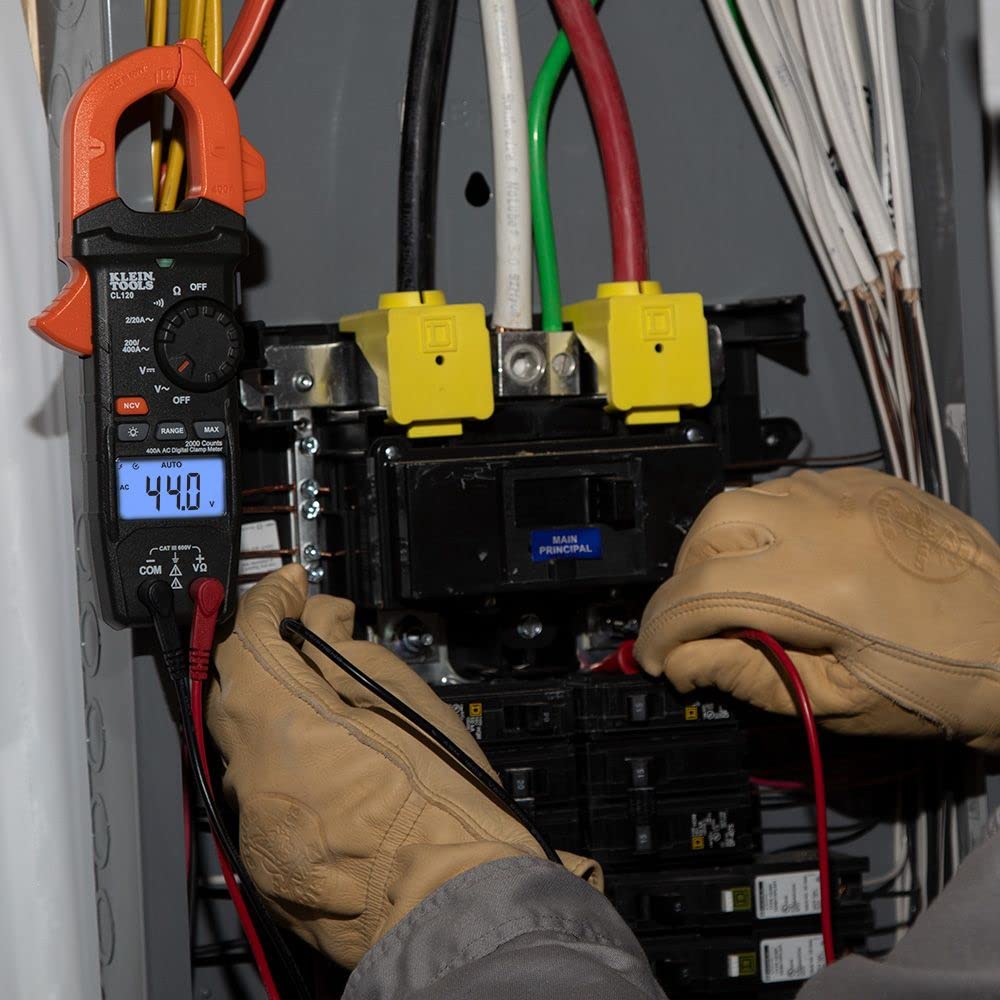
Educational Purposes:
- Digital multimeters are valuable educational tools used in academic institutions, vocational training programs, and DIY workshops to teach principles of electronics, electrical circuits, and measurement techniques.
- Students learn to use these multimeters to perform basic and advanced measurements, interpret readings, and troubleshoot circuits under the guidance of instructors or through self-directed learning.
- Digital multimeters enhance hands-on learning experiences, fostering practical skills development and problem-solving abilities in fields related to science, technology, engineering, and mathematics (STEM).
The versatility, accuracy, and ease of use of multimeters make them indispensable tools across various industries and educational settings. Whether for diagnosing electronic faults, maintaining automotive systems, ensuring industrial reliability, or fostering learning, multimeters play a crucial role in facilitating efficient testing, troubleshooting, and measurement tasks.
Tips for Efficient Usage
To maximize the efficiency and accuracy of digital multimeters, consider the following tips:
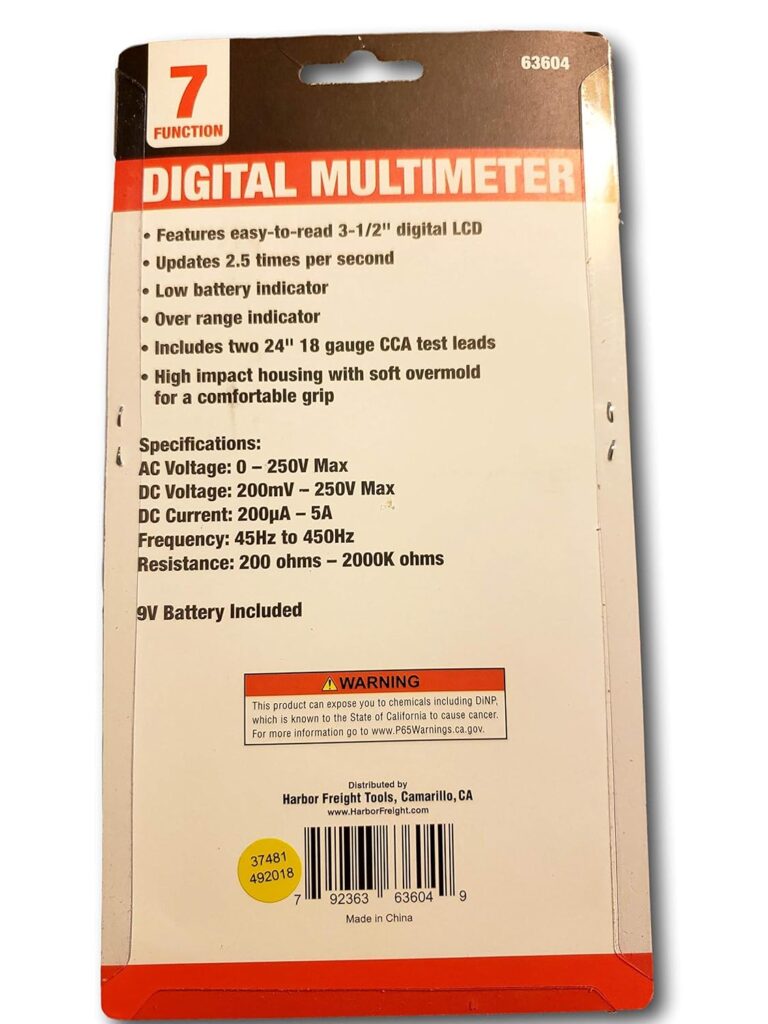
Familiarize Yourself with the User Manual:
- Before using a digital multimeter, thoroughly read and understand the user manual provided by the manufacturer.
- Familiarize yourself with the features, functions, and operational procedures outlined in the manual to ensure safe and efficient usage of the multimeter.
Select the Correct Measurement Range:
- Always select the appropriate measurement range on the multimeter based on the expected value of the parameter being measured.
- Choosing the correct range prevents overload conditions, ensures accurate readings, and protects the multimeter from potential damage.
Use Proper Probing Techniques:
- Ensure secure connections by firmly attaching the probes to the test points or terminals on the circuit being measured.
- Avoid touching the metal probe tips with your fingers while taking measurements to minimize the risk of electrical shock or interference.
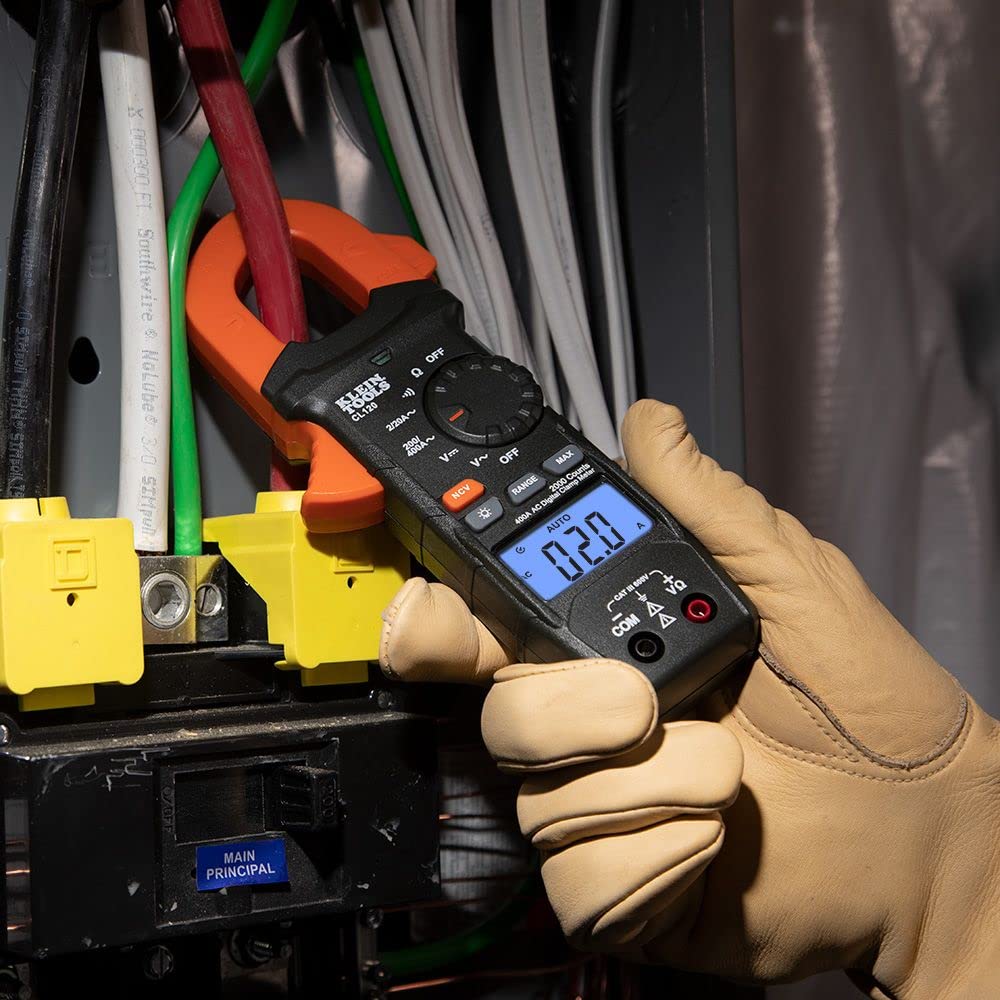
Practice Safety Measures:
- Exercise caution when working with live circuits or high-voltage environments.
- Wear appropriate personal protective equipment (PPE), such as insulated gloves and safety goggles, to protect yourself from electrical hazards.
- Follow standard electrical safety protocols, such as de-energizing circuits, before performing measurements and testing.
Calibrate Periodically:
- Regularly calibrate your multimeter to maintain accuracy and reliability over time.
- Periodic calibration ensures that the multimeter provides accurate readings and complies with industry standards and specifications.
- Follow the manufacturer’s recommendations for calibration intervals or consult a certified calibration service provider for professional calibration services.
By adhering to these tips, users can enhance the efficiency, accuracy, and safety of multimeter usage in various testing, troubleshooting, and measurement tasks. Familiarizing oneself with the user manual, selecting the correct measurement range, employing proper probing techniques, practicing safety measures, and conducting periodic calibration are essential practices for maximizing the utility and longevity of multimeters in electronics, electrical engineering, automotive maintenance, and other applications.
Popular Brands of Digital Multimeters
Here is a detail list of famous brands of Digital Multimeters available in market,
Specifications:
- True RMS AC voltage and current measurement.
- Resistance measurement up to 50 megaohms.
- Capacitance measurement up to 10,000 microfarads.
- Temperature measurement with optional probe.
- CAT III 1000V, CAT IV 600V safety ratings.
- Large display with analog bar graph for easy reading.
- Built-in min-max-average recording and peak hold functions.
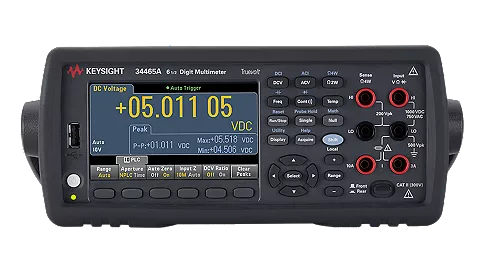
Keysight Technologies
- Keysight Technologies is a leading provider of electronic measurement solutions, offering a range of digital multimeters for various applications.
- The Keysight U1282A True RMS Handheld Digital Multimeter is a popular choice among professionals.
Specifications:
- True RMS AC voltage and current measurement.
- Resistance measurement up to 50 megaohms.
- Capacitance measurement up to 20,000 microfarads.
- Temperature measurement with optional probe.
- CAT III 1000V, CAT IV 600V safety ratings.
- Dual display with backlight for easy viewing.
- Data logging and USB connectivity for data transfer.
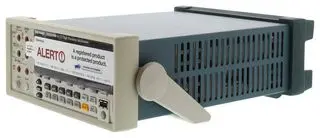
Tektronix
- Tektronix is a leading manufacturer of test and measurement instruments, offering digital multimeters known for their performance and versatility.
- The Tektronix DMM4050 Digital Multimeter is a popular model suitable for a wide range of applications.
Specifications:
- True RMS AC voltage and current measurement.
- Resistance measurement up to 100 megaohms.
- Capacitance measurement up to 10,000 microfarads.
- Frequency measurement up to 300 MHz.
- CAT III 1000V, CAT IV 600V safety ratings.
- Large color display with graphical representation of measurements.
- Ethernet and USB connectivity for remote monitoring and data logging.
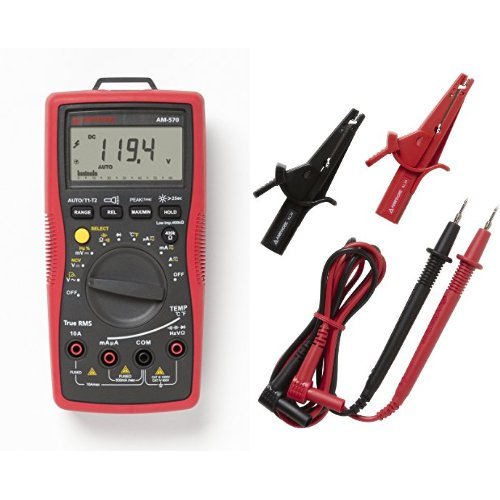
Amprobe
- Amprobe is a trusted brand specializing in electrical test and measurement tools, offering a range of digital multimeters suitable for professionals and DIY enthusiasts.
- The Amprobe AM-570 HVAC Digital Multimeter is popular among HVAC technicians.
Specifications:
- True RMS AC voltage and current measurement.
- Resistance measurement up to 40 megaohms.
- Capacitance measurement up to 4,000 microfarads.
- Temperature measurement with built-in thermocouple.
- CAT III 1000V, CAT IV 600V safety ratings.
- Built-in low pass filter for accurate voltage and frequency measurements in motor drive applications.
- Dual display with backlight and analog bar graph.
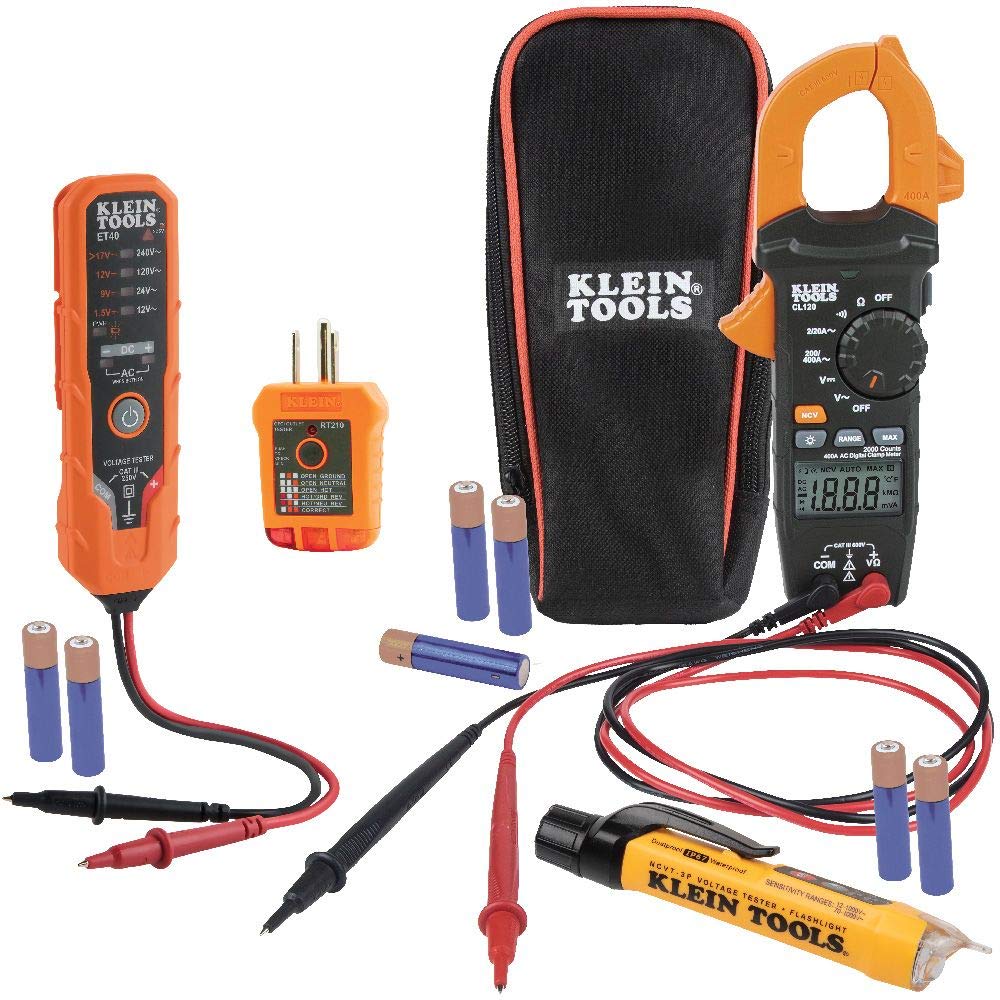
Klein Tools
- Klein Tools is a well-known manufacturer of hand tools and test equipment, offering a range of digital multimeters designed for electricians and professionals.
- The Klein Tools MM700 Auto-Ranging Digital Multimeter is a popular choice for its rugged construction and reliable performance.
Specifications:
- Auto-ranging true RMS AC voltage and current measurement.
- Resistance measurement up to 60 megaohms.
- Capacitance measurement up to 4,000 microfarads.
- CAT IV 600V safety rating.
- Low impedance (LoZ) mode for accurate voltage measurements in ghost voltage scenarios.
- Magnetic mount and kickstand for hands-free operation.
- Backlit display with bar graph for easy reading in low-light conditions.
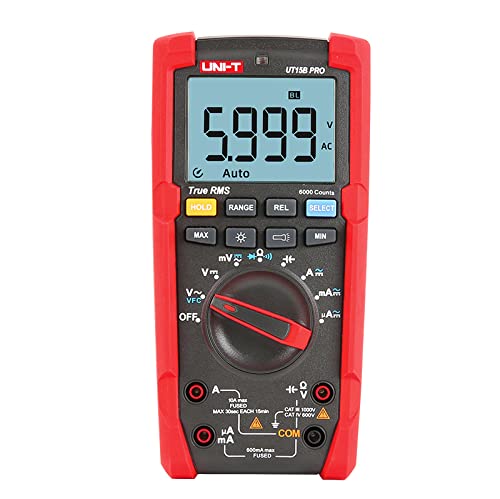
Uni-Trend (UNI-T)
- Uni-Trend is a leading manufacturer of electronic test and measurement instruments, offering a wide range of digital multimeters for various applications and budgets.
- The Uni-Trend UT61E True RMS Digital Multimeter is a popular model known for its affordability and feature set.
Specifications:
- True RMS AC voltage and current measurement.
- Resistance measurement up to 220 megaohms.
- Capacitance measurement up to 22,000 microfarads.
- Temperature measurement with optional probe.
- CAT III 1000V, CAT IV 600V safety ratings.
- Data logging and USB connectivity for data transfer.
- Large LCD display with backlight and analog bar graph.
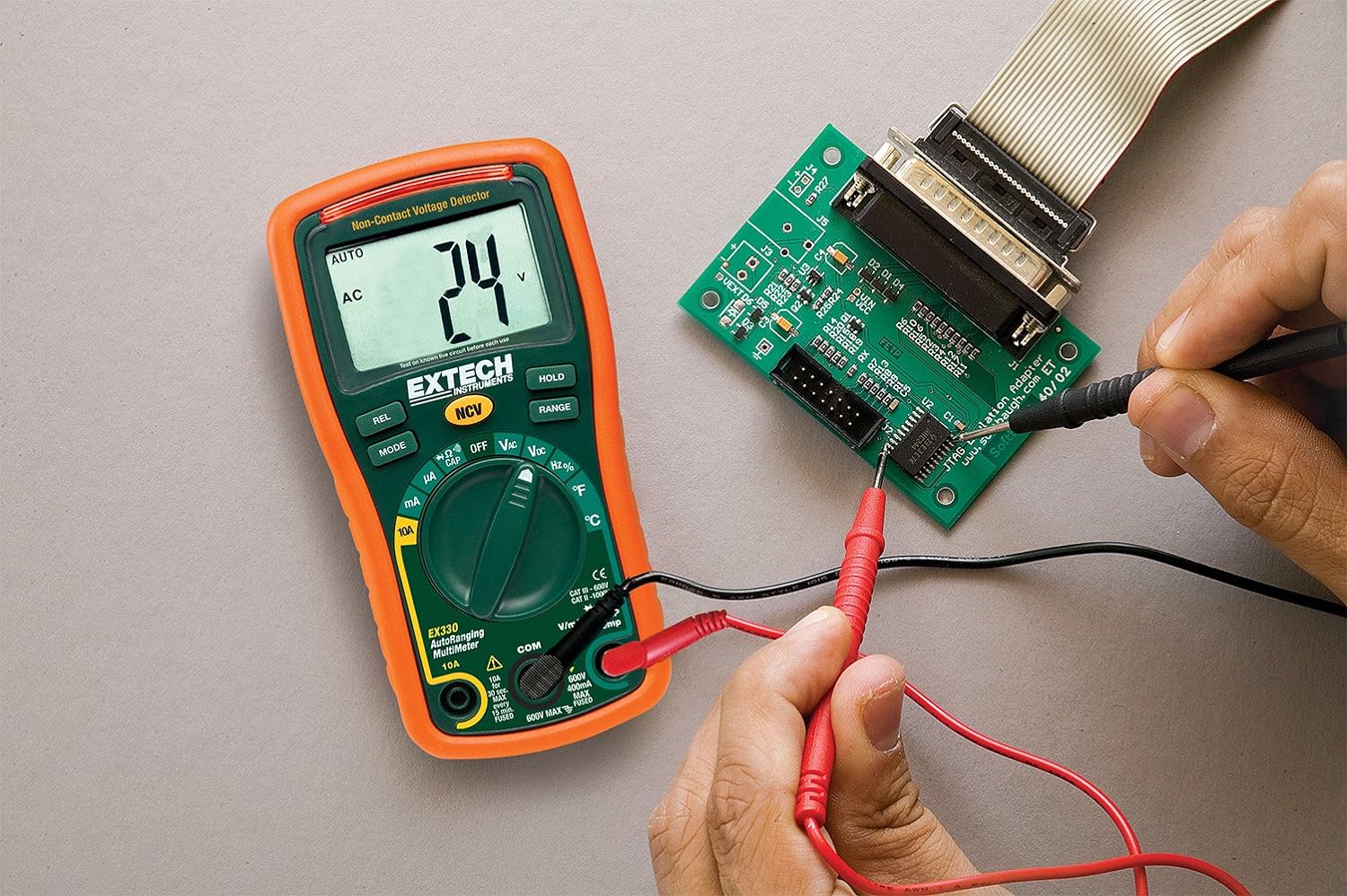
Extech Instruments
- Extech Instruments specializes in portable test and measurement instruments for industrial, electrical, and HVAC applications, offering a range of digital multimeters with advanced features.
- The Extech EX330 Compact True RMS Digital Multimeter is a popular choice among professionals and DIY enthusiasts.
Specifications:
- True RMS AC voltage and current measurement.
- Resistance measurement up to 40 megaohms.
- Capacitance measurement up to 4,000 microfarads.
- Temperature measurement with built-in thermocouple.
- CAT III 600V safety rating.
- Built-in non-contact voltage detector.
- Large backlit display with data hold and auto power-off feature.
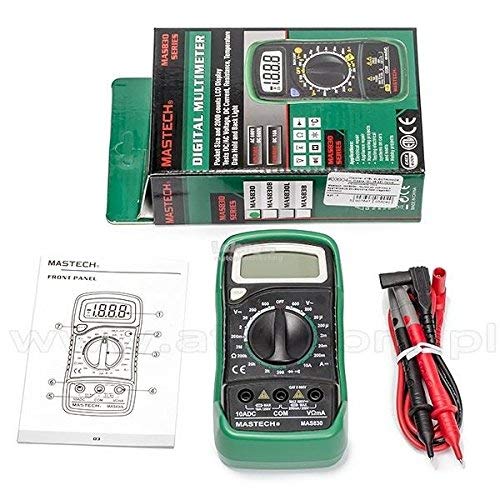
Mastech
- Mastech is a manufacturer of electronic test and measurement instruments, offering a range of digital multimeters suitable for professionals and hobbyists.
- The Mastech MS8268 Auto/Manual Ranging Digital Multimeter is a popular model known for its versatility and affordability.
Specifications:
- Auto/manual ranging AC/DC voltage and current measurement.
- Resistance measurement up to 60 mega ohms.
- Capacitance measurement up to 200 micro farads.
- Frequency measurement up to 10 MHz.
- CAT II 1000V, CAT III 600V safety ratings.
- Large LCD display with backlight and analog bar graph.
- Built-in flashlight and kickstand for convenience.
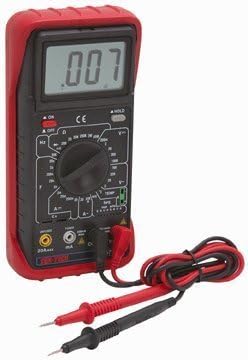
A Cen-Tech Digital Multimeter
A Cen-Tech Digital Multimeter is a handheld electronic device used to measure various electrical parameters in circuits, systems, and devices. It’s an essential tool for professionals, hobbyists, technicians, and DIY enthusiasts working with electronics, electrical wiring, automotive systems, and more.
Here are the key components and features typically found in a Cen-Tech Digital Multimeter:
Digital Display:
Most Cen-Tech multimeters feature a digital LCD (Liquid Crystal Display) screen that shows measurement readings clearly and accurately. The display may vary in size and resolution depending on the model.
Measurement Functions:
Cen-Tech multimeters are capable of measuring several electrical parameters, including:
- Voltage: AC (Alternating Current) and DC (Direct Current) voltage measurements to determine the electrical potential difference between two points in a circuit.
- Current: AC and DC current measurements to determine the flow of electrical charge in a circuit.
- Resistance: Measurement of resistance in ohms (Ω), allowing users to check the continuity of wires and components and troubleshoot electrical problems.
- Capacitance: Some models may also measure capacitance, which is the ability of a component to store electrical charge.
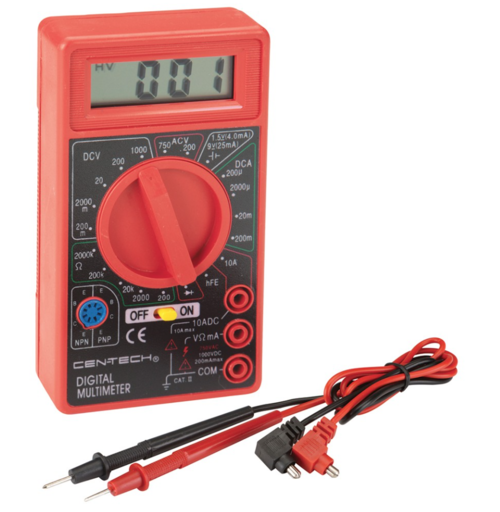
Input Ports and Dial Settings:
Cen-Tech multimeters typically have input ports and a rotating dial or selector switch to choose the desired measurement function and range. Common settings may include voltage, current, resistance, and continuity testing, among others.
Probes:
These are the detachable wire leads with pointed metal tips used to make electrical connections to the circuit or component being tested. Cen-Tech multimeters usually come with probes that have insulated handles for safety and convenience.
Auto-ranging vs. Manual-ranging:
Some Cen-Tech multimeter models offer auto-ranging functionality, which automatically selects the appropriate measurement range based on the detected signal. Others may require manual selection of the measurement range using the dial or buttons.
Additional Features:
Depending on the model, Cen-Tech multimeters may include additional features such as:
- Diode testing: To check the functionality of diodes and semiconductors.
- Frequency measurement: To measure the frequency of AC signals.
- Data hold: To freeze the display reading for easy recording.
- Backlight: For improved visibility in low-light conditions.
- Overload protection: To prevent damage to the multimeter from excessive voltage or current.
Power Source:
Cen-Tech multimeters typically use batteries (commonly AA or AAA) as their power source. Some models may also offer the option to use rechargeable batteries.
Overall, Cen-Tech Multimeters are valued for their affordability, reliability, and versatility, making them suitable for a wide range of electrical testing and troubleshooting applications. However, it’s important to follow proper safety precautions and usage guidelines when working with electricity and using a multimeter.
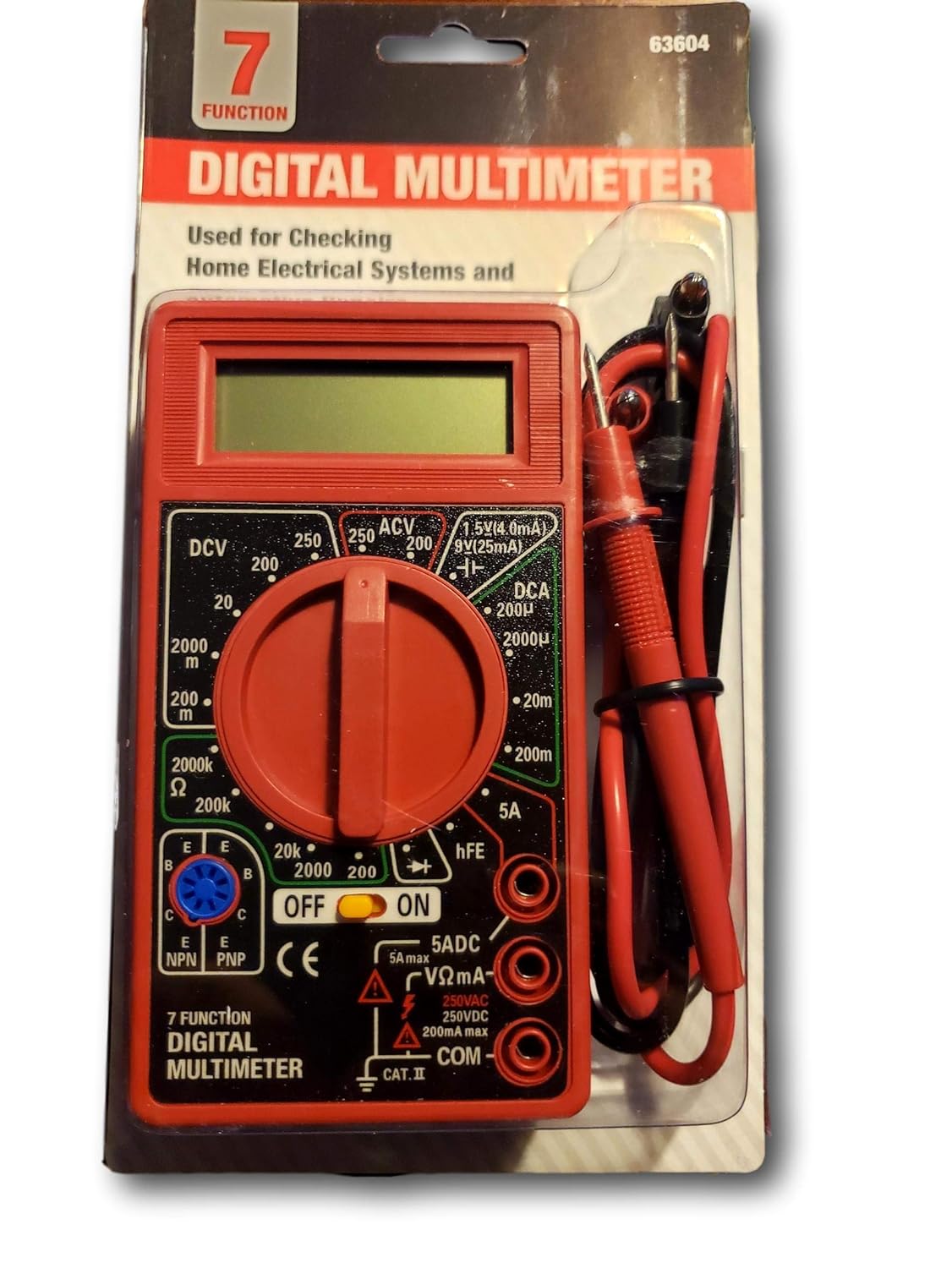
A 7-Function Digital Multimeter
A 7-function digital multimeter is a versatile electronic device designed for measuring various electrical parameters in circuits, systems, and devices. As the name suggests, it typically offers seven different measurement functions, making it suitable for a wide range of applications in both professional and DIY settings.
Here are the key features and functions commonly found in a 7-function digital multimeter:
Voltage Measurement (AC/DC):
This function allows users to measure both AC (Alternating Current) and DC (Direct Current) voltages. It’s useful for determining the electrical potential difference between two points in a circuit, helping diagnose power issues, test batteries, and troubleshoot electrical systems.
Current Measurement (AC/DC):
The multimeter can measure both AC and DC currents, indicating the flow of electrical charge in a circuit. This function is essential for checking current levels, detecting overloads, and evaluating the performance of electronic components.
Resistance Measurement:
With this function, users can measure the resistance of components and conductors in ohms (Ω). It’s commonly used for testing continuity, verifying wire integrity, and diagnosing faulty resistors or connections in circuits.
Diode Testing:
Diode testing allows users to check the functionality of diodes and other semiconductor devices. By applying a small voltage across the diode and observing the current flow, the multimeter can determine if the diode is functioning correctly or if it’s open or shorted.
Continuity Testing:
Continuity testing verifies if there is a continuous electrical path between two points in a circuit. When the multimeter detects low resistance or continuity (usually below a certain threshold), it emits a beep or displays a reading, indicating a connected circuit. This function is handy for checking for breaks or faults in wires and connections.
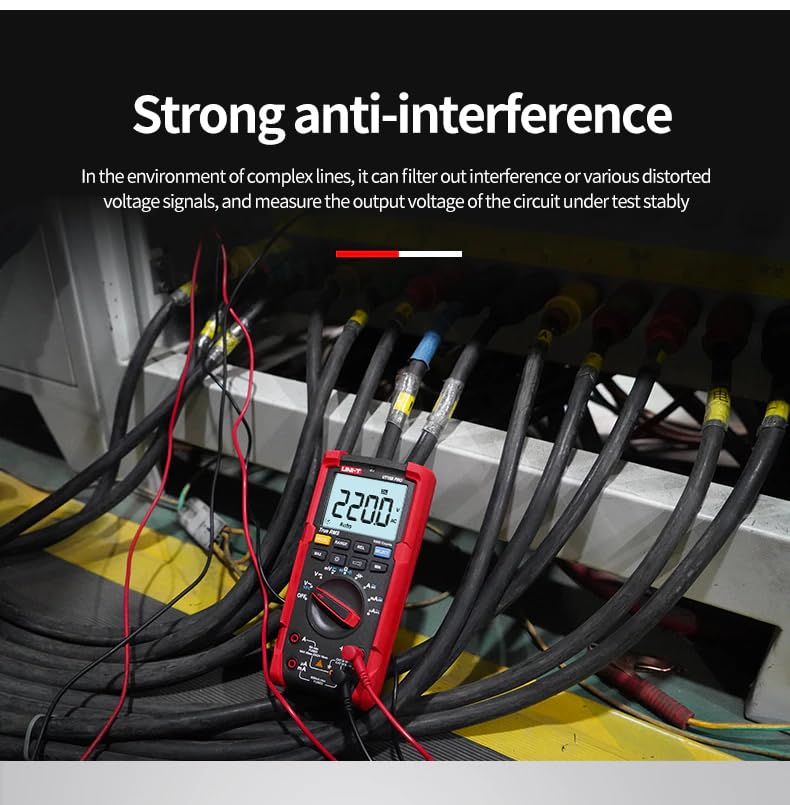
Battery Testing:
Some 7-function multimeters include a battery testing function, allowing users to check the voltage levels of batteries. It’s useful for determining if batteries are still usable or need replacement, ensuring proper operation of battery-powered devices.
Data Hold:
This feature allows users to freeze the display reading temporarily, making it easier to record measurements in situations where it’s challenging to read the display while probing. It’s particularly useful when working in cramped spaces or when taking measurements in hard-to-reach areas.
In addition to these primary functions, a 7-function multimeter may include other features such as auto-ranging capabilities, backlit displays for improved visibility in low-light conditions, and protective features like overload protection to prevent damage to the multimeter or the circuit under test.
Overall, a 7-function multimeter provides users with essential tools for accurately measuring and diagnosing electrical systems, making it a valuable instrument for technicians, engineers, electricians, and hobbyists alike.
These are just a few examples of popular brands and models of digital multimeters available in the market. When selecting this product, consider factors such as measurement accuracy, resolution, safety ratings, warranty coverage, additional features, and compatibility with your specific application requirements.
CONTACT US FOR ANY QUESTION ABOUT THIS ARTICLE
FAQs: FREQUENTLY ASKED QUESTIONS
What is a digital multimeter (DMM)?
A digital multimeter (DMM) is an electronic test instrument used to measure various electrical parameters such as voltage, current, and resistance. It typically features a digital display for precise readings.
How does a digital multimeter differ from an analog multimeter?
While analog multimeters use a mechanical display with a moving needle, digital multimeters employ a digital display for accurate and easy-to-read measurements. Digital multimeters also offer additional features such as auto-ranging and data logging.
What are the main functions of a multimeter?
The main functions of a multimeter include voltage measurement (AC and DC), current measurement (AC and DC), resistance measurement, continuity testing, and sometimes capacitance and temperature measurement.
How accurate are multimeters?
The accuracy of multimeters can vary depending on the model and specifications. Higher-end models typically offer greater accuracy and resolution, while budget models may have slightly lower accuracy.
Can digital multimeters measure both AC and DC voltages?
Yes, most multimeters are capable of measuring both AC and DC voltages across various ranges, allowing users to troubleshoot and diagnose electrical circuits in different applications.
What safety precautions should I take when using a digital multimeter?
Safety precautions include wearing appropriate personal protective equipment (PPE), selecting the correct measurement range, ensuring proper probing techniques, and following standard electrical safety protocols when working with live circuits.
How do I choose the right multimeter for my needs?
Consider factors such as measurement accuracy, resolution, safety ratings, additional features (e.g., capacitance, temperature), and compatibility with your specific application requirements when selecting a multimeter.
Can multimeters be used to test continuity in circuits?
Yes, multimeters often feature a continuity test function that emits an audible beep or displays a visual indicator when a circuit is complete, making it easy to identify continuity or connectivity issues.
Are there any limitations to using multimeters?
While digital multimeters are versatile tools, they may have limitations in terms of measurement range, accuracy, and compatibility with specialized applications compared to dedicated test equipment.
How do I calibrate a multimeter?
The manufacturer and model can have an impact on the calibration processes. It is recommended to follow the instructions provided in the user manual or consult a certified calibration service provider for professional calibration services.
What are the different types of multimeters available?
The main types include handheld multimeters, bench top multimeters, automotive multimeters, and specialty multimeters for specific industries or applications.
How do handheld multimeters differ from benchtop models?
Handheld multimeters are portable and suitable for on-the-go measurements, while benchtop models are stationary instruments with advanced features and capabilities for laboratory and benchtop applications.
What are the key features to look for in an automotive multimeter?
Key features include specialized functions for automotive diagnostics, such as battery voltage testing, alternator output testing, continuity testing, and compatibility with automotive accessories and probes.
Are there multimeters specifically designed for HVAC applications?
Yes, there are multimeters tailored for HVAC (heating, ventilation, and air conditioning) applications, featuring functions for temperature measurement, airflow measurement, and troubleshooting HVAC systems.
Can I use a bench top multimeter for fieldwork?
While bench top multimeters offer advanced features and capabilities, they are typically not designed for portability and may be less suitable for fieldwork compared to handheld models.
What makes automotive digital multimeters suitable for automotive diagnostics?
Automotive digital multimeters offer specialized functions, accessories, and safety ratings tailored for diagnosing and troubleshooting electrical issues in vehicles, making them indispensable tools for automotive technicians.
Are there digital multimeters designed for specific industries or applications?
Yes, there are digital multimeters designed for specific industries or applications, such as industrial maintenance, electronics repair, HVAC, and scientific research, offering specialized features and functions to meet the unique requirements of each application.
Can I use a handheld digital multimeter for laboratory experiments?
Yes, handheld digital multimeters are versatile tools suitable for various applications, including laboratory experiments, provided that they meet the required accuracy, resolution, and safety standards.
What are the advantages of using a benchtop digital multimeter over a handheld one?
Benchtop digital multimeters offer advanced features, larger displays, higher accuracy, and greater measurement capabilities compared to handheld models, making them ideal for demanding laboratory and benchtop applications.
Are there digital multimeters suitable for both professional and DIY use?
Yes, there are digital multimeters available at different price points and feature sets to cater to both professional technicians and DIY enthusiasts, offering a range of functions, accuracy levels, and safety ratings to suit various user requirements.
How are digital multimeters used in electronics repair?
Digital multimeters are used to troubleshoot and repair electronic devices by measuring voltages, currents, resistances, and continuity in circuits to diagnose and resolve electrical issues.
Can digital multimeters diagnose issues in household appliances?
Yes, digital multimeters can be used to diagnose electrical issues in household appliances such as refrigerators, washing machines, and microwaves by testing power supplies, components, and connections for faults.
What types of electrical engineering tasks can digital multimeters assist with?
Digital multimeters are used in electrical engineering for circuit analysis, testing prototypes, verifying electrical parameters, and debugging electronic systems in various applications and industries.
Are digital multimeters suitable for troubleshooting automotive electrical systems?
Yes, digital multimeters are essential tools for diagnosing and troubleshooting electrical issues in automotive systems, including battery voltage testing, alternator output testing, and sensor diagnostics.
How do industrial maintenance technicians use digital multimeters?
Industrial maintenance technicians use digital multimeters for preventive maintenance, troubleshooting machinery, and ensuring electrical safety compliance in industrial settings.
Can digital multimeters be used in educational settings?
Yes, digital multimeters are valuable educational tools used in academic institutions and vocational training programs to teach principles of electronics, electrical circuits, and measurement techniques to students.
Are digital multimeters used in scientific research?
Yes, digital multimeters are used in scientific research for measuring and analyzing electrical parameters in laboratory experiments and research projects across various scientific disciplines.
What are some common DIY projects where digital multimeters are helpful?
DIY enthusiasts use digital multimeters for various projects such as building electronic circuits, testing batteries, troubleshooting home electrical systems, and repairing electronic devices.
Can digital multimeters be used to test battery life?
Yes, digital multimeters can be used to test battery voltage and capacity, providing insights into battery health and remaining charge.
Are there any safety considerations when using digital multimeters in various applications?
Yes, it is important to follow standard electrical safety protocols, wear appropriate personal protective equipment, select the correct measurement range, and use proper probing techniques to ensure safe usage of digital multimeters in different applications.
Why is it important to read the user manual before using a digital multimeter?
Reading the user manual provides essential information on the features, functions, and safety precautions of the digital multimeter, ensuring safe and efficient usage.
How do I know which measurement range to select on the digital multimeter?
Select the measurement range based on the expected value of the parameter being measured to prevent overload conditions and ensure accurate readings.
What are some proper probing techniques to ensure accurate measurements?
Proper probing techniques include firmly attaching the probes to the test points, avoiding contact with adjacent components, and minimizing electrical interference.
Why is safety important when using digital multimeters?
Safety is important to prevent electrical hazards, protect yourself from injury, and avoid damage to the digital multimeter and the equipment being tested.
How often should I calibrate my digital multimeter?
Digital multimeters should be calibrated periodically according to the manufacturer’s recommendations or industry standards to maintain accuracy and reliability.
Can I use digital multimeters in wet or humid conditions?
While some digital multimeters are designed for use in harsh environments, it is generally recommended to avoid using them in wet or humid conditions to prevent damage to the instrument.
What should I do if my digital multimeter displays unexpected readings?
Check the measurement range, connections, and probe placement to ensure proper usage and troubleshoot any potential issues with the circuit or the digital multimeter itself.
Are there any special considerations when using digital multimeters for high-voltage measurements?
Yes, when making high-voltage measurements, use appropriate safety precautions, such as wearing insulated gloves and ensuring the digital multimeter has the necessary safety ratings for the voltage being measured.
Can I replace the probes of my digital multimeter if they become damaged?
Yes, most digital multimeters allow for interchangeable probes, and replacement probes can be purchased from the manufacturer or third-party suppliers.
Are there any maintenance tasks I should perform regularly on my digital multimeter?
Regular maintenance tasks may include cleaning the display screen and probes, checking for loose connections, and storing the digital multimeter in a protective case when not in use to prolong its lifespan and ensure reliable performance.

